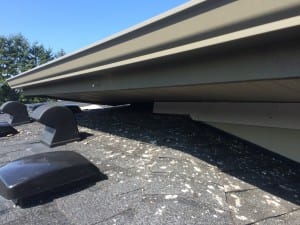 PANAJI: Pigeon population is growing in the city without any growth in awareness among the people that pigeon droppings can cause a lung-related disease.
PANAJI: Pigeon population is growing in the city without any growth in awareness among the people that pigeon droppings can cause a lung-related disease.
According to a Mumbai-based news report, dried droppings of pigeons contain spores, which if inhaled may lead to respiratory illness. Their faecal matter is highly acidic and can destroy buildings and monuments.
The report has further adds that daily exposure to pigeons can lead to progressive symptoms like irreversible lung fibrosis and even death.
People feed pigeons as charity, for religious reasons or fun or just because others are doing so, but contact with their droppings could pose a health risk.
Hypersensitivity pneumonitis, a human disease, is known to be caused by repetitive inhalation of antigenic agents found in pigeon droppings.
A lack of awareness on how pigeon droppings can be a health hazard can become a hurdle in diagnosis for doctors.
A well-fed pigeon on an average dispenses up to 11.5 kg of droppings a year. The pigeons are often found sitting on TV antennas, atop AC units, window sills, housetops, eaves, power lines, and in ducts and vents.
They often make nests in buildings and rapidly reproduce. Pigeon droppings are often found deposited on park benches, statues, and cars, and are an aesthetic problem.
To bird lovers, pigeons are hardy survivors in a concrete city; many feel that caring for pigeons is a humane thing to do. But, to households, corporations housed in gleaming high rises and health experts, these birds are pests that test ‘our commitment to cleanliness and disease control.’
There is no NGO taking care of the birds like pigeons, like some NGOs care for dogs, and surprisingly none of the government authorities – forest department and animal husbandry department have woken up to the pigeon menace.
The forest department claimed of not receiving a single complaint of pigeon menace in the city, but urged the residents to avoid feeding pigeons that can backfire, resulting in a serious menace.
An official said that residents need to take long-term measures by blocking their nesting sites and installing ultra sonic sound system to frighten them up.
The CCP said that they do not have any measures to put curbs on unregulated bird feeding that increases pest menace as such food meant for pigeons invariably attracts rats.
Pigeon-feeding stations are slowly mushrooming in the city. It gets started with feeding the birds with grains and leftover food; and while the flock grows larger, another station emerges a little away on the other side of the road. Often we find pavements and roads with mounds of uneaten grains, bread and rice, which attract other animals too.
In the city, one see some major pigeon-feeding stations near Rameshwar Lodge, Hotel Nova Goa, Hotel Kamat, municipal garden, behind Rebello building, new CCP market area and Tonca near Thomas Garage.
These birds are known to return to the place where they are fed and, according to some studies, organise their day around feeding.
Bird experts feel that unregulated practice of feeding and enough spots for nesting are the main reasons for the pigeon population explosion. The other reason being the absence of natural predators.
“The issue of their population has arose as people started leaving grains and food for them. They no longer have to make an effort to find food and a good nesting area, which has made them prolific breeders,” said president of Goa Bird Conservation Network, Parag Rangnekar, who is involved in bird conservation efforts.
“Unless there is a study done to prove that pigeon droppings cause incidences of respiratory problem then it is wrong to blame pigeons for that,” he added.
A resident of Tonca, Ismail Nawar, called for a plan to control the pigeon population.
“People should also be discouraged from feeding pigeons in public places,” Nawar said, adding that it is the only way to prevent overfeeding.
Sanjay Sarmalkar, from St Inez, said that not only are the bird droppings are health hazard, they also do some serious damage to vehicle paint.
“I have to daily wash my car which remains covered with droppings, otherwise, these acidic and grainy droppings can stain and take the gloss off the paint if left for too long,” Sarmalkar added.
About Pigeon Patrol:
Pigeon Patrol Products & Services is the leading manufacturer and distributor of bird deterrent (control) products in Canada. Pigeon Patrol products have solved pest bird problems in industrial, commercial, and residential settings since 2000, by using safe and humane bird deterrents with only bird and animal friendly solutions. At Pigeon Patrol, we manufacture and offer a variety of bird deterrents, ranging from Ultra-flex Bird Spikes with UV protection, Bird Netting, 4-S Gel and the best Ultrasonic and audible sound devices on the market today.
Voted Best Canadian wholesaler for Bird Deterrent products four years in a row.
Contact Info: 1- 877– 4– NO-BIRD (www.pigeonpatrol.ca)

